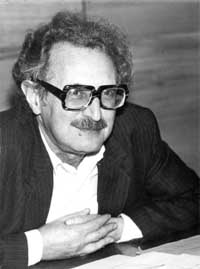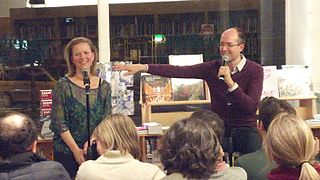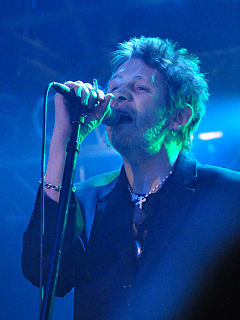A Quote by Madeleine L'Engle
If you aren't unhappy sometimes you don't know how to be happy.
Related Quotes
My approach is that we are not searching for experiences here. We are trying to know the one who experiences all experiences. Our search is for the witness. Who is this observer? Who is this consciousness? Sometimes it feels sad, sometimes it feels happy; sometimes it is so high, flying in the sky, and sometimes so down. Who is this watcher of all these games? - high and low, happy, unhappy, in heaven and hell. Who is this watcher? To know this watcher is to know God. And you are already it - just a little awakening is needed... no search but only awakening.
Gordie, the white boy genius, gave me this book by a Russian dude named Tolstoy, who wrote, 'Happy families are all alike; every unhappy family is unhappy in its own way.' Well, I hate to argue with a Russian genius, but Tolstoy didn't know Indians, and he didn't know that all Indian families are unhappy for the same exact reasons: the frikkin' booze.
In a vacuum all photons travel at the same speed. They slow down when travelling through air or water or glass. Photons of different energies are slowed down at different rates. If Tolstoy had known this, would he have recognised the terrible untruth at the beginning of Anna Karenina? 'All happy families are alike; every unhappy family is unhappy in its own particular way.' In fact it's the other way around. Happiness is a specific. Misery is a generalisation. People usually know exactly why they are happy. They very rarely know why they are miserable.



































